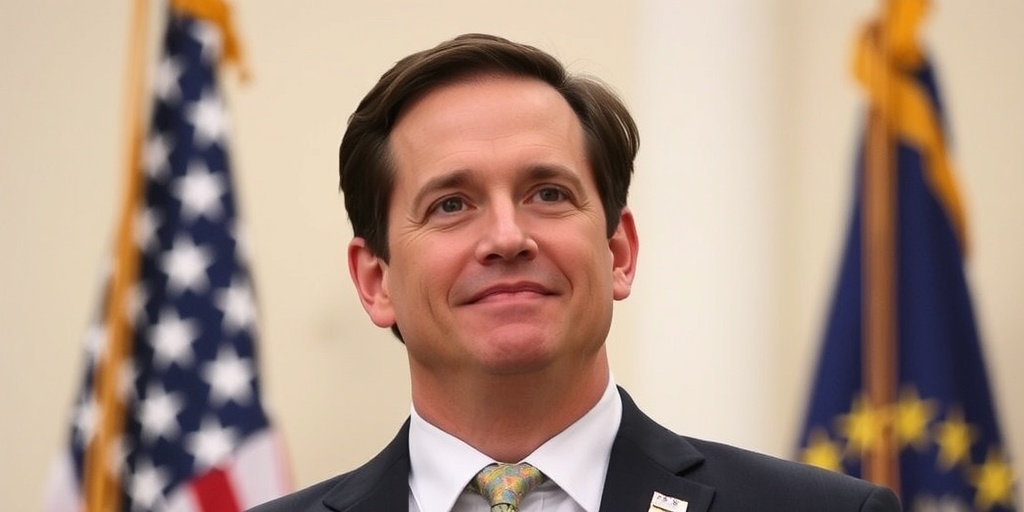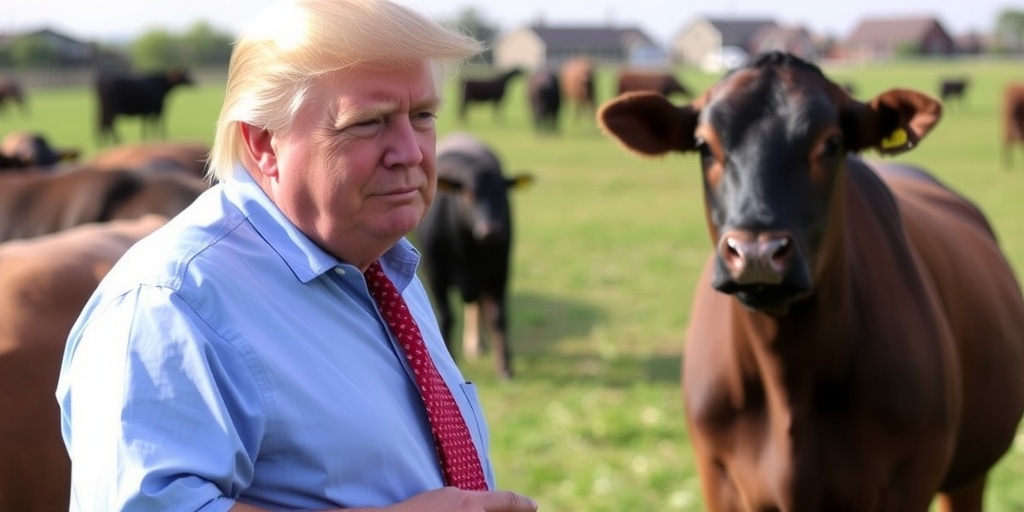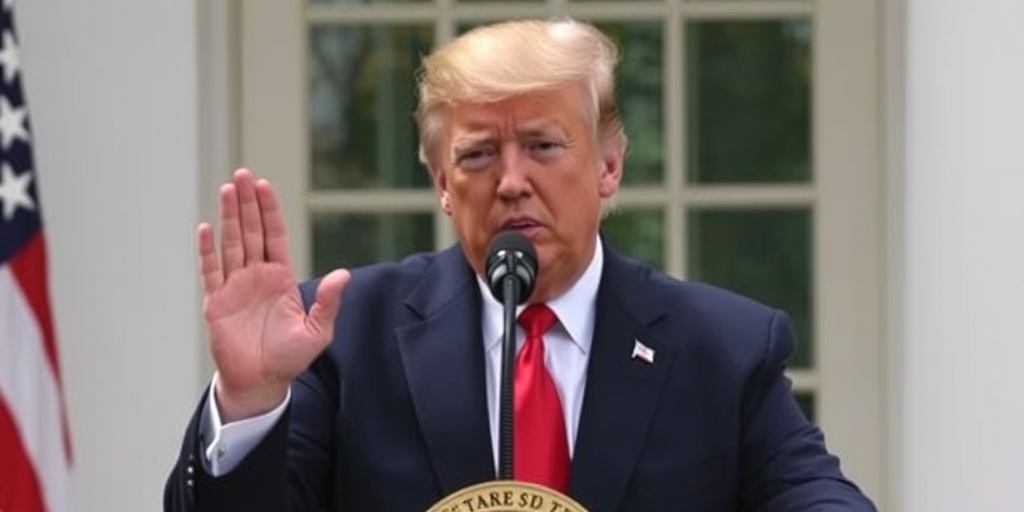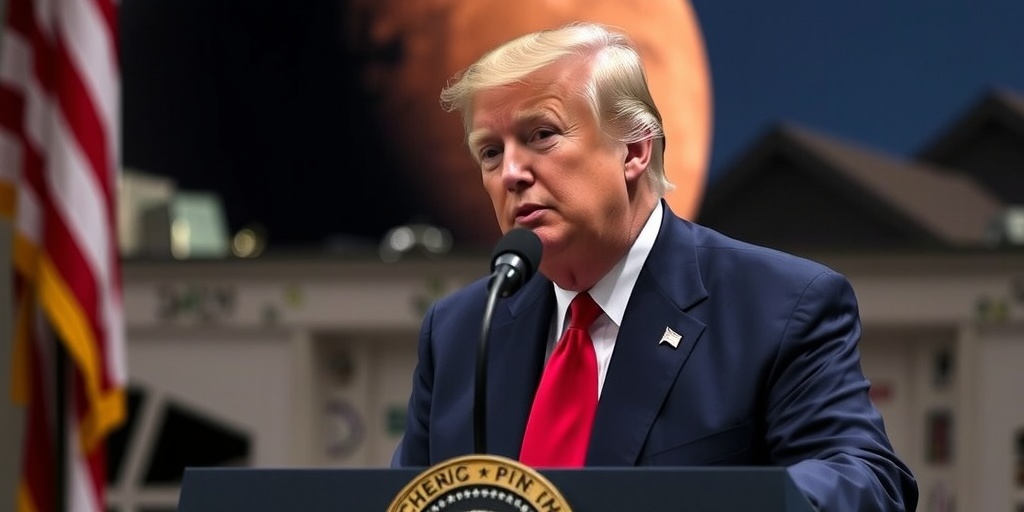Now Reading: Marco Rubio Confirmed as Secretary of State by Senate
-
01
Marco Rubio Confirmed as Secretary of State by Senate
Marco Rubio Confirmed as Secretary of State by Senate

Senator Marco Rubio Confirmed as America’s 72nd Secretary of State
On Monday, the Senate made a historic decision by unanimously confirming Senator Marco Rubio, a Republican from Florida, as America’s 72nd Secretary of State. In a striking 99-to-0 vote, Sen. Rubio not only assumes a pivotal role in U.S. diplomacy but also makes history as the first Latino to ever hold this prestigious position. This confirmation marks a significant moment for the Trump administration, as Rubio becomes President Trump’s first Cabinet secretary to be confirmed.
Stepping into this role, Rubio will replace Antony J. Blinken and inherit a complex set of foreign policy challenges that require immediate attention and adept navigation. Key issues looming on his agenda include the ongoing conflict in Ukraine, the delicate cease-fire in Gaza, and the strategic rivalry with China, which Rubio has deemed the defining challenge of the century. His experience as a senator has long equipped him with a hawkish foreign policy perspective, emphasizing humanitarian considerations and human rights, an approach that will test his ability to align his values with the transactional worldview espoused by President Trump.
The dynamics of Rubio’s relationship with Trump are particularly pertinent. Their history dates back to the competitive and, at times, contentious 2016 Republican presidential primaries, during which Trump publicly derided Rubio, dubbing him "Little Marco." As a result, foreign diplomats and political analysts will closely observe this relationship, especially given Trump’s tumultuous history with his first Secretary of State, Rex Tillerson, who was dismissed via social media after a little over a year in office. The success of Rubio’s tenure may hinge on his ability to establish a collaborative and harmonious relationship with Trump, a feat that could prove challenging.
Born on May 28, 1971, in Miami, Florida, Rubio is the son of Cuban immigrants who fled to the United States in 1956. Growing up, Rubio was instilled with the values of hard work and resilience—his father worked as a bartender while his mother served as a hotel housekeeper. After spending several years in Las Vegas, the family returned to Miami, where Rubio’s journey in American society began. He attended the University of Florida, graduating in 1993, before going on to earn a law degree from the University of Miami. His political career began in earnest when he was elected to the Florida House of Representatives, ultimately serving as its speaker from 2000 to 2008.
Rubio’s ascent to the Senate in 2010 brought with it the excitement of political pundits who saw in him a possible future presidential contender. During his early senatorial career, he championed bipartisan collaboration on immigration reform while advocating for a proactive U.S. foreign policy, particularly towards repressive regimes reminiscent of the oppressive Castro regime that impacted his family’s history. However, his presidential aspirations faced significant obstacles during the 2016 primaries as Trump’s campaign undermined his candidacy with personal jabs.
Despite their rivalry, Rubio opted to defend Trump post-election, aligning himself with the administration and utilizing his experience on Senate committees focused on foreign relations and intelligence to bolster his expertise in international matters. This political maneuvering appears to have paid off, as it paved the way for his confirmation as Secretary of State.
In a testimony during his confirmation hearing earlier this month, Rubio indicated his intention to adopt a more pragmatic and "realistic" approach to American interests abroad. He emphasized the importance of bringing an end to the war in Ukraine, reaffirmed his strong support for Israel, and characterized countering China’s expanding influence as a critical priority for his new role.
Rubio’s journey from a young Cuban-American politician in Florida to Secretary of State encapsulates the evolving landscape of American politics, characterized by shifting alliances and the increasing importance of global engagement. As he takes on the challenges of this influential position, the world will be watching closely to see how Marco Rubio shapes U.S. foreign policy in a rapidly changing global environment. His confirmation represents not only a personal victory but also a notable moment for Latino representation in the highest echelons of American governance.
Stay Informed With the Latest & Most Important News
Previous Post
Next Post
-
 01New technology breakthrough has everyone talking right now
01New technology breakthrough has everyone talking right now -
 02Unbelievable life hack everyone needs to try today
02Unbelievable life hack everyone needs to try today -
 03Fascinating discovery found buried deep beneath the ocean
03Fascinating discovery found buried deep beneath the ocean -
 04Man invents genius device that solves everyday problems
04Man invents genius device that solves everyday problems -
 05Shocking discovery that changes what we know forever
05Shocking discovery that changes what we know forever -
 06Internet goes wild over celebrity’s unexpected fashion choice
06Internet goes wild over celebrity’s unexpected fashion choice -
 07Rare animal sighting stuns scientists and wildlife lovers
07Rare animal sighting stuns scientists and wildlife lovers





















